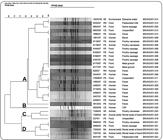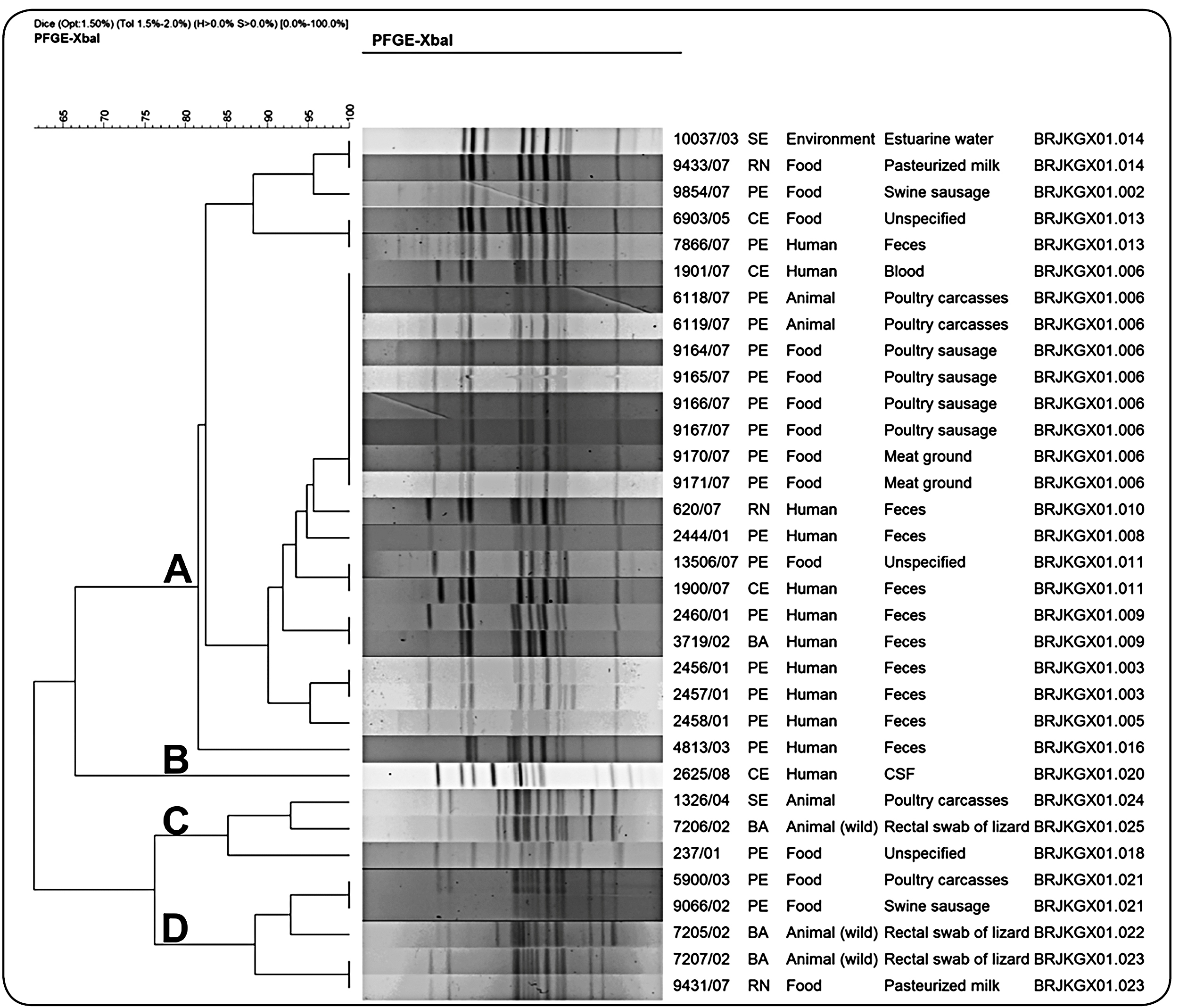Abstract
INTRODUCTION
Salmonella enterica serovar Panama belongs to the D1 serogroup and is frequently associated with nontyphoidal salmonellosis in humans. This study aimed to characterize isolates collected from Northeast Brazil by phenotypic and molecular methods.
METHODS
Forty four S. Panama strains were examined for antimicrobial susceptibility, virulence genes, and pulsed field gel electrophoresis (PFGE) types.
RESULTS
All strains were susceptible to antibiotics (except for streptomycin), presented classical virulence factors, and could be clustered into four groups and 18 pulsotypes.
CONCLUSIONS
This work calls for continuous surveillance for the emergence of antibiotic resistance and new clones in a geographical area.
Keywords:
Salmonella Panama; Antimicrobial susceptibility; Virulence genes; PFGE typing; Northeast Brazil

 Thumbnail
Thumbnail
